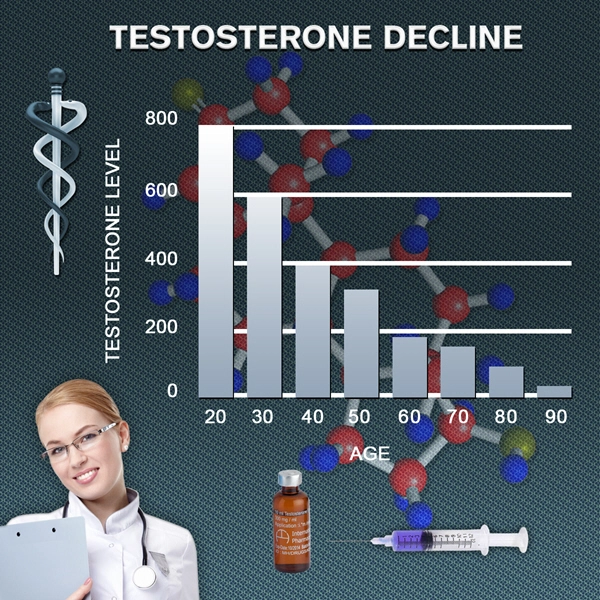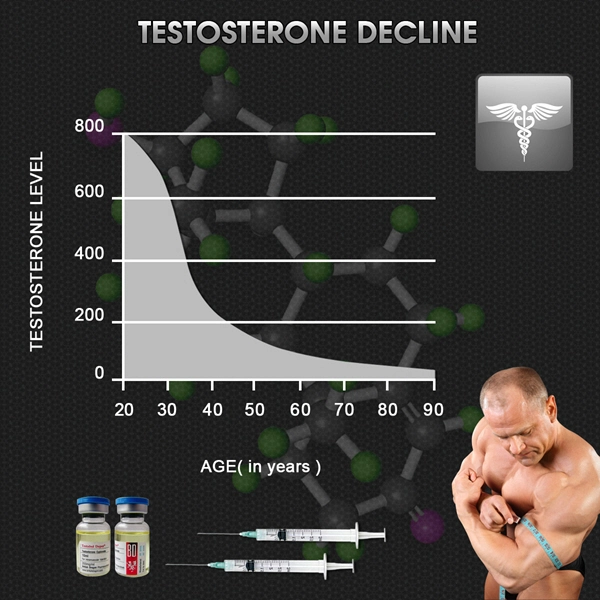Introduction to Tlando Oral Capsules
Tlando, a novel oral testosterone replacement therapy, has emerged as a significant advancement in the management of testosterone deficiency in American males. As a groundbreaking alternative to traditional testosterone injections and topical gels, Tlando offers the convenience of oral administration. However, with this innovation comes the necessity to thoroughly understand the potential risks associated with its use.
Understanding Testosterone Deficiency
Testosterone deficiency, also known as hypogonadism, affects a significant portion of American males, leading to symptoms such as decreased libido, fatigue, and mood disturbances. The condition can stem from various causes, including aging, obesity, and underlying medical conditions. Tlando aims to address these symptoms by providing a consistent and convenient method of testosterone supplementation.
Mechanism of Action of Tlando
Tlando contains testosterone undecanoate, a prodrug that is absorbed through the gastrointestinal tract and converted into active testosterone within the body. This oral formulation bypasses the need for injections or transdermal applications, potentially improving patient compliance and satisfaction. However, the oral route of administration introduces unique pharmacokinetic and safety considerations that must be carefully managed.
Potential Risks and Side Effects
While Tlando offers a promising solution for testosterone deficiency, American males considering this therapy must be aware of potential risks and side effects. Common adverse reactions include increased hematocrit, which can lead to an elevated risk of blood clots, and potential cardiovascular events. Additionally, Tlando may cause fluctuations in blood pressure and liver function abnormalities, necessitating regular monitoring by healthcare professionals.
Cardiovascular Considerations
One of the most significant concerns with Tlando is its potential impact on cardiovascular health. Studies have indicated a possible association between testosterone therapy and increased risks of heart attack, stroke, and other cardiovascular events, particularly in men with pre-existing heart conditions. American males with a history of cardiovascular disease should exercise caution and consult with their cardiologist before initiating Tlando therapy.
Liver Function and Monitoring
As an orally administered testosterone prodrug, Tlando undergoes first-pass metabolism in the liver, which can lead to potential hepatotoxicity. Regular monitoring of liver function tests is crucial for patients on Tlando to detect any early signs of liver stress or damage. American males with pre-existing liver conditions or those at risk for liver disease should discuss these concerns with their healthcare provider before starting Tlando.
Hematocrit and Polycythemia
Tlando can cause an increase in red blood cell production, leading to elevated hematocrit levels and potential polycythemia. This condition can increase the risk of blood clots, stroke, and other thrombotic events. Regular monitoring of hematocrit levels is essential, and dose adjustments or discontinuation of Tlando may be necessary if polycythemia develops.
Prostate Health Considerations
Testosterone therapy, including Tlando, has been associated with concerns regarding prostate health. While the evidence is not conclusive, some studies suggest a potential link between testosterone supplementation and an increased risk of prostate enlargement or prostate cancer. American males with a history of prostate issues or those at high risk for prostate cancer should discuss these concerns with their urologist before starting Tlando.
Importance of Regular Monitoring and Follow-up
Given the potential risks associated with Tlando, regular monitoring and follow-up with healthcare providers are crucial for American males on this therapy. This includes periodic assessments of cardiovascular health, liver function, hematocrit levels, and prostate health. Open communication with healthcare professionals and adherence to recommended monitoring protocols can help mitigate risks and optimize the benefits of Tlando therapy.
Conclusion: Weighing the Benefits and Risks
Tlando oral capsules represent a significant advancement in testosterone replacement therapy, offering American males a convenient and effective treatment option for testosterone deficiency. However, the potential risks associated with this therapy, including cardiovascular events, liver toxicity, polycythemia, and prostate health concerns, necessitate a thorough understanding and careful management. By working closely with their healthcare providers and adhering to recommended monitoring protocols, American males can make informed decisions about the use of Tlando and optimize their overall health and well-being.

- Tlando Oral Capsules: A Convenient Solution for American Men's Low Testosterone [Last Updated On: March 17th, 2025] [Originally Added On: March 17th, 2025]
- Tlando: Revolutionizing Testosterone Therapy for American Males with Oral Capsules [Last Updated On: March 17th, 2025] [Originally Added On: March 17th, 2025]
- Tlando Oral Capsules: Enhancing Bone Health in American Males with Low Testosterone [Last Updated On: March 18th, 2025] [Originally Added On: March 18th, 2025]
- Tlando Oral Capsules: A Convenient Solution for Testosterone Deficiency in American Men [Last Updated On: March 19th, 2025] [Originally Added On: March 19th, 2025]
- Tlando Oral Capsules: Revolutionizing Fatigue Treatment in American Men with Testosterone Therapy [Last Updated On: March 19th, 2025] [Originally Added On: March 19th, 2025]
- Tlando Oral Capsules: Enhancing Muscle Mass and Strength in American Males [Last Updated On: March 19th, 2025] [Originally Added On: March 19th, 2025]
- Tlando Oral Capsules: Enhancing Psychological Health in American Men with Low Testosterone [Last Updated On: March 20th, 2025] [Originally Added On: March 20th, 2025]
- Tlando Oral TRT: Benefits, Risks, and Long-Term Effects on Men's Health [Last Updated On: March 20th, 2025] [Originally Added On: March 20th, 2025]
- Navigating Insurance Coverage for Tlando: A Guide for American Men [Last Updated On: March 21st, 2025] [Originally Added On: March 21st, 2025]
- Tlando Oral Capsules: A New Era in Testosterone Therapy for American Males [Last Updated On: March 21st, 2025] [Originally Added On: March 21st, 2025]
- Tlando Oral Capsules: Managing Side Effects and Optimizing Testosterone Therapy [Last Updated On: March 22nd, 2025] [Originally Added On: March 22nd, 2025]
- Tlando Oral Capsules: A New Era in Treating Testosterone Deficiency in American Males [Last Updated On: March 24th, 2025] [Originally Added On: March 24th, 2025]
- Tlando Oral Capsules: A Breakthrough in Hypogonadism Treatment for American Men [Last Updated On: March 24th, 2025] [Originally Added On: March 24th, 2025]
- Tlando Oral Capsules: A Breakthrough in Testosterone Replacement Therapy for American Males [Last Updated On: March 24th, 2025] [Originally Added On: March 24th, 2025]
- Tlando Oral Capsules: Enhancing Sleep Quality in American Males with Testosterone Therapy [Last Updated On: March 24th, 2025] [Originally Added On: March 24th, 2025]
- Tlando Oral Capsules: A Heart-Healthy TRT Option for American Males [Last Updated On: March 24th, 2025] [Originally Added On: March 24th, 2025]
- Optimizing Tlando Therapy: Dietary Considerations for American Men with Hypogonadism [Last Updated On: March 24th, 2025] [Originally Added On: March 24th, 2025]
- Tlando Oral Capsules: Revolutionizing Testosterone Therapy for Enhanced Performance and Well-being [Last Updated On: March 24th, 2025] [Originally Added On: March 24th, 2025]
- Tlando Oral Capsules: A Breakthrough in Testosterone Therapy for Aging American Males [Last Updated On: March 24th, 2025] [Originally Added On: March 24th, 2025]
- Tlando Oral Capsules: A Breakthrough in Testosterone Therapy for American Men [Last Updated On: March 24th, 2025] [Originally Added On: March 24th, 2025]
- Tlando Oral Capsules: A New Era in TRT with Minimal Prostate Health Impact [Last Updated On: March 24th, 2025] [Originally Added On: March 24th, 2025]
- Tlando Oral Capsules: Revolutionizing Testosterone Therapy for Young American Men [Last Updated On: March 24th, 2025] [Originally Added On: March 24th, 2025]
- Tlando Oral Capsules: Revolutionizing Testosterone Therapy for American Males [Last Updated On: March 25th, 2025] [Originally Added On: March 25th, 2025]
- Tlando Oral Capsules: A Breakthrough in Treating Low Libido in American Men [Last Updated On: March 25th, 2025] [Originally Added On: March 25th, 2025]
- Tlando Oral Capsules: A New Era in Testosterone Replacement Therapy for American Men [Last Updated On: March 25th, 2025] [Originally Added On: March 25th, 2025]
- Tlando Oral Capsules: A New Hope for Male Infertility and Hypogonadism Treatment [Last Updated On: March 25th, 2025] [Originally Added On: March 25th, 2025]
- Tlando Oral Capsules: Efficacy and Safety in Treating Testosterone Deficiency in American Males [Last Updated On: March 25th, 2025] [Originally Added On: March 25th, 2025]
- Tlando Oral Capsules: Enhancing Joint Health in American Males Through Testosterone Therapy [Last Updated On: March 26th, 2025] [Originally Added On: March 26th, 2025]
- Tlando Oral Capsules: A Comprehensive Guide to Testosterone Therapy for American Men [Last Updated On: March 26th, 2025] [Originally Added On: March 26th, 2025]
- Tlando Oral Capsules: Revolutionizing Testosterone Therapy for Men's Mental Health [Last Updated On: March 26th, 2025] [Originally Added On: March 26th, 2025]
- Tlando Oral Capsules: Revolutionizing Stress Management in American Men [Last Updated On: March 26th, 2025] [Originally Added On: March 26th, 2025]
- Tlando Oral Capsules: Revolutionizing Testosterone Therapy for American Males with Hypogonadism [Last Updated On: March 26th, 2025] [Originally Added On: March 26th, 2025]
- Tlando Oral Capsules: Enhancing Men's Skin Health with Testosterone Therapy [Last Updated On: March 26th, 2025] [Originally Added On: March 26th, 2025]
- Tlando Oral Capsules: A New Approach to Testosterone Therapy for American Males [Last Updated On: March 26th, 2025] [Originally Added On: March 26th, 2025]
- Tlando Oral Capsules: Revolutionizing Testosterone Therapy for American Men Across Professions [Last Updated On: March 26th, 2025] [Originally Added On: March 26th, 2025]
- Tlando Oral Capsules: Revolutionizing Testosterone Therapy for American Men [Last Updated On: March 26th, 2025] [Originally Added On: March 26th, 2025]
- Tlando Oral Capsules: Revolutionizing Testosterone Therapy for American Males [Last Updated On: March 26th, 2025] [Originally Added On: March 26th, 2025]
- Tlando Oral Capsules: Enhancing Vision Health in American Men Through Testosterone Therapy [Last Updated On: March 26th, 2025] [Originally Added On: March 26th, 2025]
- Tlando Oral Capsules: A Convenient Solution for Low Testosterone in American Men [Last Updated On: March 27th, 2025] [Originally Added On: March 27th, 2025]
- Tlando Oral Capsules: A New Approach to Weight Management in American Males with Low Testosterone [Last Updated On: March 27th, 2025] [Originally Added On: March 27th, 2025]
- Tlando Oral Capsules: Enhancing Cognitive Function in American Men via Testosterone Therapy [Last Updated On: March 27th, 2025] [Originally Added On: March 27th, 2025]
- Tlando Therapy: Lifestyle Adjustments for American Males with Low Testosterone [Last Updated On: March 28th, 2025] [Originally Added On: March 28th, 2025]
- Tlando Capsules: Enhancing Immune Function in American Men [Last Updated On: March 28th, 2025] [Originally Added On: March 28th, 2025]
- Tlando Oral Capsules: Enhancing Blood Flow and Revolutionizing Men's Health [Last Updated On: March 28th, 2025] [Originally Added On: March 28th, 2025]
- Tlando Oral Capsules: Enhancing Respiratory Health in American Males with Testosterone Therapy [Last Updated On: March 28th, 2025] [Originally Added On: March 28th, 2025]
- Tlando Oral Capsules: Enhancing Kidney Function in American Men [Last Updated On: March 28th, 2025] [Originally Added On: March 28th, 2025]
- Tlando Oral Capsules: Monitoring Progress for Optimal TRT in American Men [Last Updated On: March 28th, 2025] [Originally Added On: March 28th, 2025]
- Tlando Capsules: Testosterone Therapy and Its Effects on Hair Growth in American Males [Last Updated On: March 28th, 2025] [Originally Added On: March 28th, 2025]
- Tlando Oral Capsules: Enhancing Digestive Health for American Men [Last Updated On: March 29th, 2025] [Originally Added On: March 29th, 2025]
- Tlando Oral Capsules: Enhancing Auditory Health in American Men with Testosterone Therapy [Last Updated On: March 30th, 2025] [Originally Added On: March 30th, 2025]
- Tlando Oral Capsules: Advancing Men's Health Equity Across Ethnic Groups [Last Updated On: April 2nd, 2025] [Originally Added On: April 2nd, 2025]
- Tlando Oral Capsules: Enhancing Bladder Function in American Men [Last Updated On: April 4th, 2025] [Originally Added On: April 4th, 2025]
- Tlando Oral Capsules: A Safe TRT Option for Hypogonadism in American Males [Last Updated On: April 5th, 2025] [Originally Added On: April 5th, 2025]
- Tlando Oral Capsules: Enhancing Men's Dental Health with Scientifically-Backed Formula [Last Updated On: April 7th, 2025] [Originally Added On: April 7th, 2025]
- Tlando Oral Capsules: Advancements in Testosterone Therapy for American Males [Last Updated On: April 7th, 2025] [Originally Added On: April 7th, 2025]
- Tlando Oral Capsules: Revolutionizing TRT for American Males with Hypogonadism [Last Updated On: April 8th, 2025] [Originally Added On: April 8th, 2025]
- Tlando Oral Capsules: Enhancing Lymphatic Function in American Men [Last Updated On: April 8th, 2025] [Originally Added On: April 8th, 2025]
- Tlando Oral Capsules: Managing Side Effects for Effective Testosterone Therapy in American Males [Last Updated On: April 8th, 2025] [Originally Added On: April 8th, 2025]
- Tlando Oral Capsules: Revolutionizing Testosterone Therapy for Men with Chronic Illnesses [Last Updated On: April 8th, 2025] [Originally Added On: April 8th, 2025]
- Tlando Oral Capsules: Revolutionizing Male Reproductive Health in America [Last Updated On: April 9th, 2025] [Originally Added On: April 9th, 2025]
- Tlando Oral Capsules: Enhancing Respiratory Health in American Men [Last Updated On: April 9th, 2025] [Originally Added On: April 9th, 2025]
- Tlando Oral Capsules: Revolutionizing Testosterone Therapy for American Men Across All Ages [Last Updated On: April 10th, 2025] [Originally Added On: April 10th, 2025]
- Tlando Oral Capsules: A Breakthrough in Testosterone Therapy for American Males [Last Updated On: April 12th, 2025] [Originally Added On: April 12th, 2025]
- Tlando Oral Capsules: Revolutionizing Testosterone Therapy for American Men's Neurological Health [Last Updated On: April 12th, 2025] [Originally Added On: April 12th, 2025]
- Tlando Oral Capsules: Enhancing Musculoskeletal Health in American Men [Last Updated On: April 15th, 2025] [Originally Added On: April 15th, 2025]
- Tlando Oral Capsules: Enhancing Urinary Health in American Males Through TRT [Last Updated On: April 15th, 2025] [Originally Added On: April 15th, 2025]
- Tlando Oral Capsules: A New Era in Testosterone Replacement Therapy for American Males [Last Updated On: April 16th, 2025] [Originally Added On: April 16th, 2025]
- Tlando Oral Capsules: Enhancing Men's Skin Health with Testosterone [Last Updated On: April 16th, 2025] [Originally Added On: April 16th, 2025]
- Tlando Oral Capsules: Revolutionizing Testosterone Therapy for American Men [Last Updated On: April 17th, 2025] [Originally Added On: April 17th, 2025]
- Tlando Oral Capsules: Adaptable TRT for Diverse American Male Diets [Last Updated On: April 17th, 2025] [Originally Added On: April 17th, 2025]
- Tlando Oral Capsules: Revolutionizing Testosterone Therapy for American Men's Diverse Needs [Last Updated On: April 17th, 2025] [Originally Added On: April 17th, 2025]
- Tlando Oral Capsules: Revolutionizing Men's Cardiovascular Health with Testosterone Therapy [Last Updated On: April 18th, 2025] [Originally Added On: April 18th, 2025]
- Tlando Oral Capsules: Enhancing Immune Function in American Men with Testosterone [Last Updated On: April 18th, 2025] [Originally Added On: April 18th, 2025]
- Tlando Oral Capsules: Impact on Gastrointestinal Health in American Males [Last Updated On: April 19th, 2025] [Originally Added On: April 19th, 2025]



List of USA state clinics - click a flag below for blood testing clinics.
Word Count: 648



















































